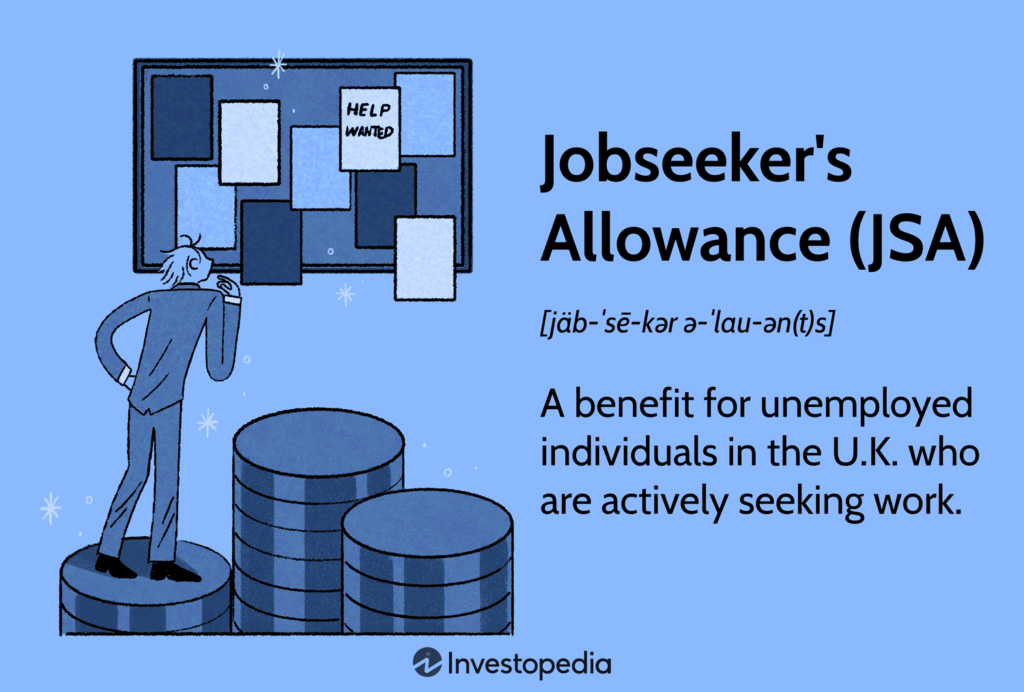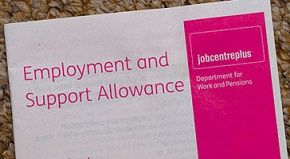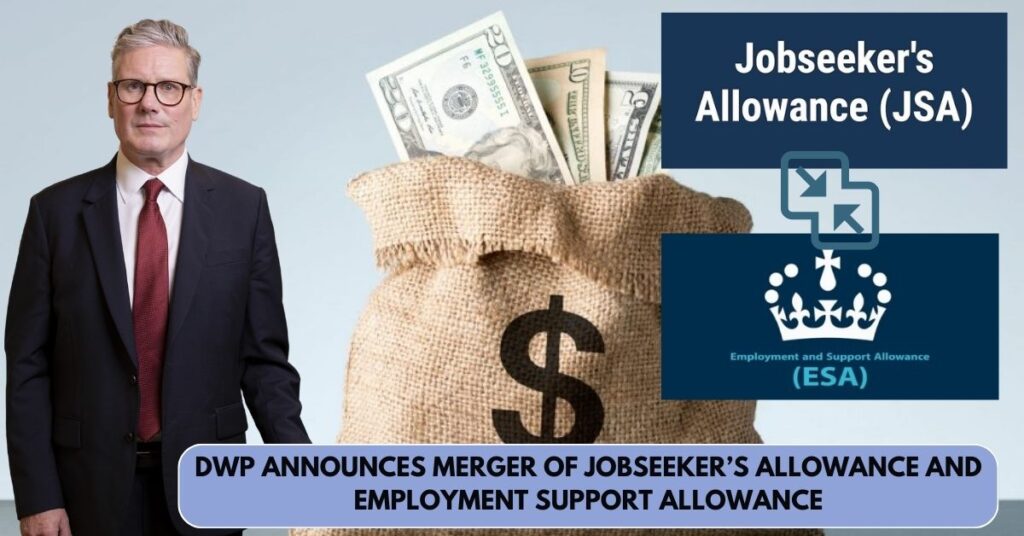The UK government has confirmed a major restructuring of its welfare system, merging two key benefits—Jobseeker’s Allowance (JSA) and Employment and Support Allowance (ESA). The move is part of a broader initiative to simplify benefits, reduce welfare costs, and encourage more people into work.
The Department for Work and Pensions (DWP) is set to introduce a new “Unemployment Insurance” benefit, which will replace JSA and ESA. The new scheme will be time-limited and based on National Insurance contributions, meaning only those who have paid into the system will qualify for support.
What This Means for Claimants

The merger of JSA and ESA will significantly change how unemployment and disability benefits are distributed. Under the new system:
- JSA and ESA will be phased out and replaced by a single contribution-based unemployment benefit.
- This benefit will be time-limited, meaning long-term unemployment claimants may not receive indefinite support.
- Individuals with disabilities who previously qualified for ESA will be assessed under new criteria to determine their eligibility for continued support.
- The new benefit will focus on transitioning claimants into employment rather than providing indefinite financial aid.
According to the UK government’s official statement (Gov.uk), the reform is designed to “modernize the welfare system and ensure it remains fair for taxpayers while supporting those in genuine need.”
Changes to Other Benefits
In addition to merging JSA and ESA, the government is introducing changes to other key welfare benefits, including Personal Independence Payment (PIP) and Universal Credit (UC):
- PIP Eligibility Will Tighten: From November 2026, only those with significant disabilities or long-term conditions will qualify. Claimants must score at least four points on daily living activities to receive support (Guardian).
- Universal Credit Adjustments: While the standard allowance for Universal Credit will rise above inflation by 2029/30, the health top-up for new claimants will be reduced. This means some claimants will receive less financial assistance.
- New “Right to Try” Work Initiative: Disabled individuals will be encouraged to test their ability to work without losing their entire benefit entitlement immediately (Guardian).
Government’s Justification and Expected Savings
The government argues that these changes are necessary to tackle rising welfare costs, which are projected to reach £70 billion annually by the end of the decade. By merging JSA and ESA and modifying PIP and UC, the government expects to save over £5 billion by 2029/30.
According to DWP officials, the new system is designed to be fairer and more sustainable, encouraging employment rather than prolonged dependency on benefits.
Concerns and Criticism
Despite the government’s claims, the proposed changes have sparked concerns among welfare advocates, charities, and opposition parties:
- Critics argue that the stricter eligibility criteria for PIP and ESA could push vulnerable individuals into poverty.
- Concerns have been raised that time-limiting unemployment benefits could leave some people without financial support if they struggle to find work.
- Opposition leaders have condemned the reforms, saying they disproportionately impact disabled and low-income individuals.
- Charities, including the Citizens Advice Bureau and Shelter, warn that reduced financial aid could increase homelessness and food poverty.

What Happens Next?
The DWP plans to roll out these changes gradually over the next few years, with full implementation expected by 2029/30.
- The transition from JSA and ESA to the new Unemployment Insurance benefit is expected to begin in late 2025.
- Stricter PIP eligibility criteria will take effect from November 2026.
- Adjustments to Universal Credit will be phased in from 2027 onwards.
Claimants are encouraged to visit the official government website (Gov.uk) for the latest updates and detailed guidance on how these changes may affect them.
Final Thoughts
The UK government’s plan to merge JSA and ESA into a single benefit marks one of the biggest welfare reforms in recent years. While the government believes these changes will create a fairer, more work-focused system, critics argue that they could negatively impact thousands of vulnerable citizens.
As the reforms roll out, claimants will need to stay informed and prepared for potential adjustments to their financial support. For further details, individuals can visit Gov.uk or reach out to welfare advice organizations for support.
Key External Links for Further Reading:
- UK Government’s Official Statement on Welfare Reforms: Gov.uk
- Changes to Disability Benefits and PIP: The Guardian
For the latest updates, visit Gov.uk.
This article has been carefully fact-checked by our editorial team to ensure accuracy and eliminate any misleading information. We are committed to maintaining the highest standards of integrity in our content.


